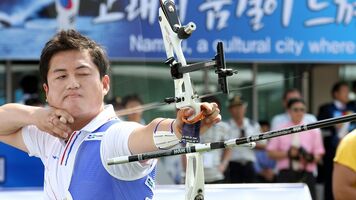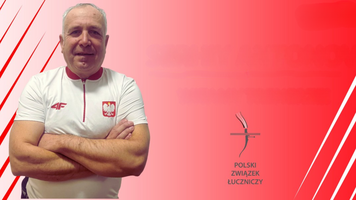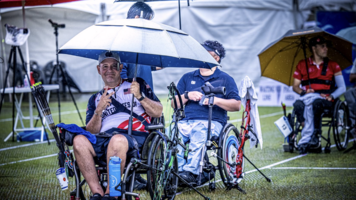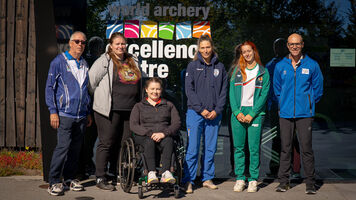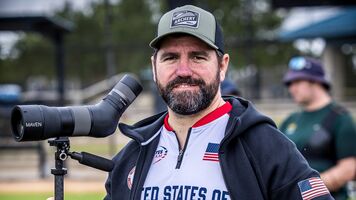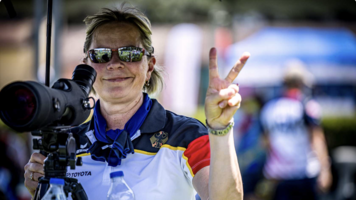The man behind the Korean recurve women’s team
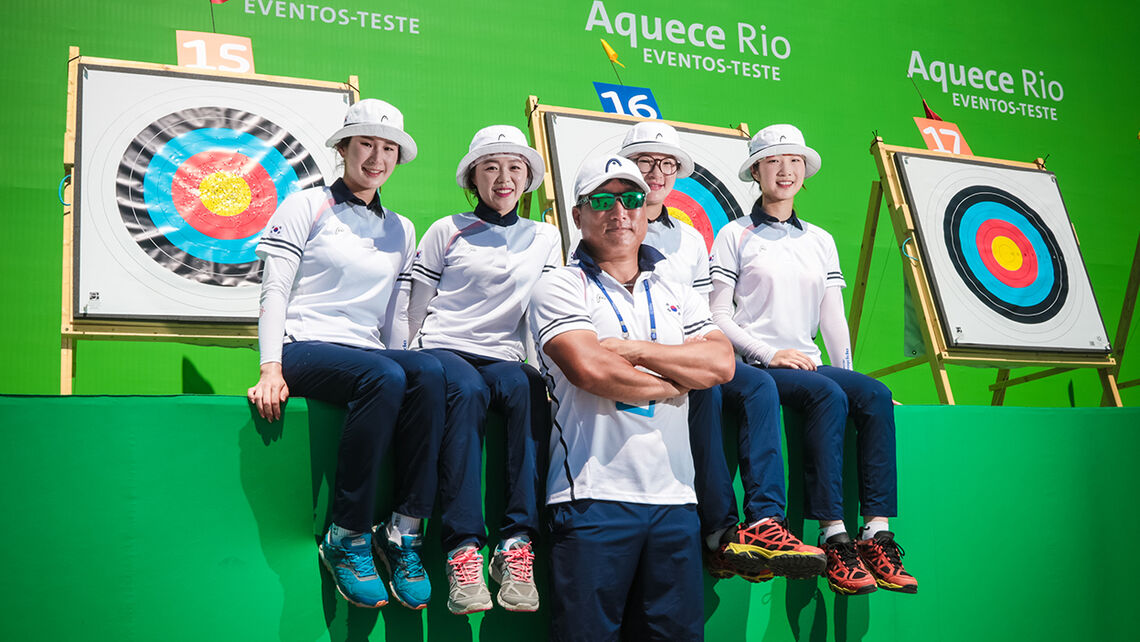
Throughout the history of the team event Olympic Games, since it was added in 1988, no nation but Korea has walked away with recurve women’s gold. That’s seven team Olympic Champion titles in total.
Behind the 2015 team line-up – individual Olympic Champion Ki Bo Bae, Kang Chae Young and Choi Misun, with Chang Hye Jin as the reserve – stands Korean legend Yang Changhoon.
Considered as one of the best Korean archers of the 90s, when he won a total of six gold medals as the Asian Games including an individual overall title at Beijing 1990, Changhoon stopped competing at the end of that decade and, in 1999, continued his archery career as a coach.
He started by creating and nurturing his own club teams – successfully – until in 2010, Yang was offered the position of head coach of the Korean international recurve women’s team.
His first event in charge was the 2010 Asian Games in Guangzhou, China, where Korea won four out of a possible four medals – two of them in the women’s events.
Since then – though with a short break for personal projects – Yang has been the man behind the Korean women’s success. The secret to maintaining the squad’s high level, Coach Yang said, was having a good relationship with the athletes both on and off the competition field.
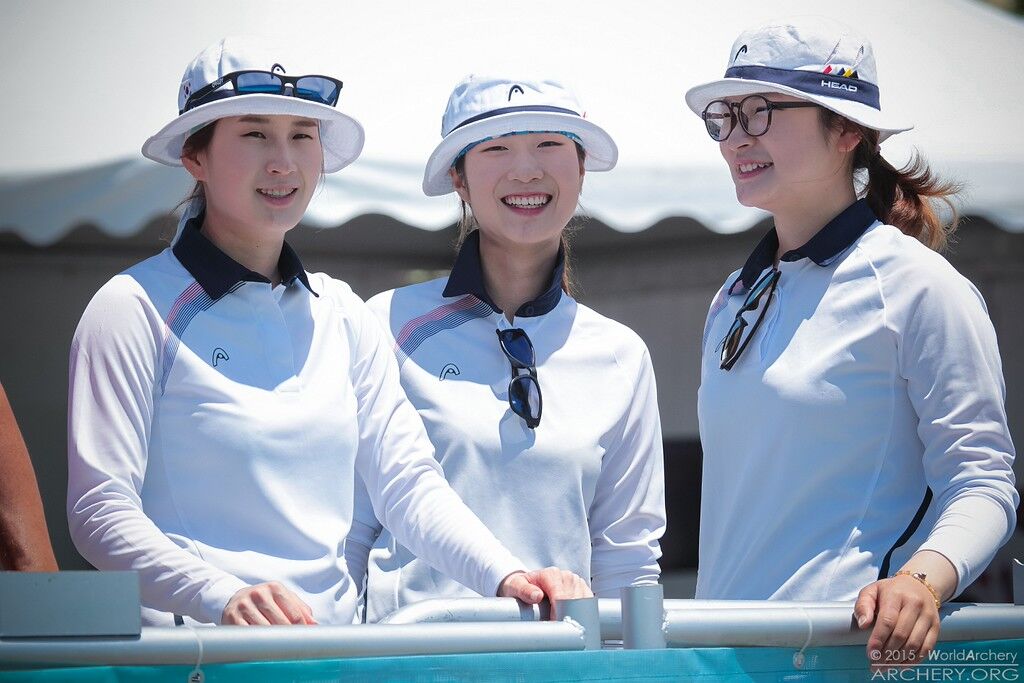
“It is very important to teach them how to shoot, but it’s more important to have good relationships with them to open their minds,” he said. “If they don’t open their minds it’s difficult to teach them.”
Coach Yang went on to explain what he meant: It’s not just about letting the coaches help them with technique issues, but helping the archers understand exactly what they do when shooting – and how they do it – as well as making the mentally strong, so much so that ‘I can’t’ doesn’t seem even possible.
The veteran leader wouldn’t be any more specific, though.
“We have secrets,” said Yang with a smile on his face. “Of course, there are many ways to teach archers to shoot well, but the most important thing is hard, intense training. Without it, you cannot be successful.”
The athletes on his team now are – like many Koreans who venture abroad – nothing if not successful.
“Bo Bae, the Olympic Champion, has more experience than the other girls. She’s the leader in the team,” said Changhoon.
“Chang and Choi are getting there. They are shooting well and have their minds clear with what they want. This team is in complete harmony. I keep trying to make them strong and so far it’s been working.”
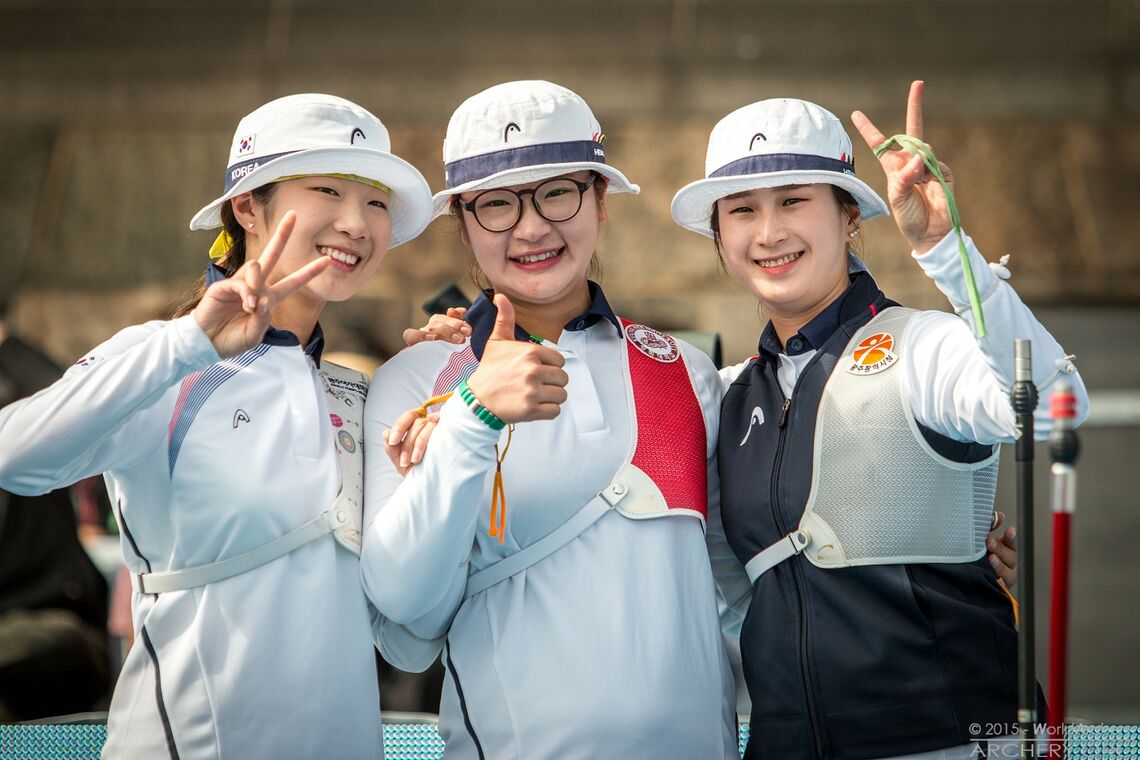
Winner at London 2012, Ki Bo Bae made her return to the Korean team in 2015 to take gold at the World Archery Championships – her first world individual title. Kang Chae Young had three golds – individual, mixed team and team – in her international debut at the first 2015 Archery World Cup stage in Shanghai, while Choi Misun qualified for the year’s Archery World Cup Final.
Bo Bae also won an invitation to Mexico City and has a chance to complete the international triple crown: Olympic, world and Archery World Cup.
Just one year removed from acting as a sports analyst for national television after not making the team in 2014, it’s quite a turnaround for the 27-year-old who made her Korean debut back in 2010.
To qualify to shoot for Korea internationally, archers compete at a number of national selection tournaments in which the results are the primary selection criteria, but where discipline and dedication are observed and noted by coaches.
It’s a long and, as many will know, an extremely tough process.
The best eight archers over the selection process form the Korean squad each year, with the top four comprising the primary Korean team for international events.
“We’ll take our alternate team to the Asian Championships in Bangkok. Then, the selection process for the team that will compete at the Olympics next year will begin,” said Changhoon.
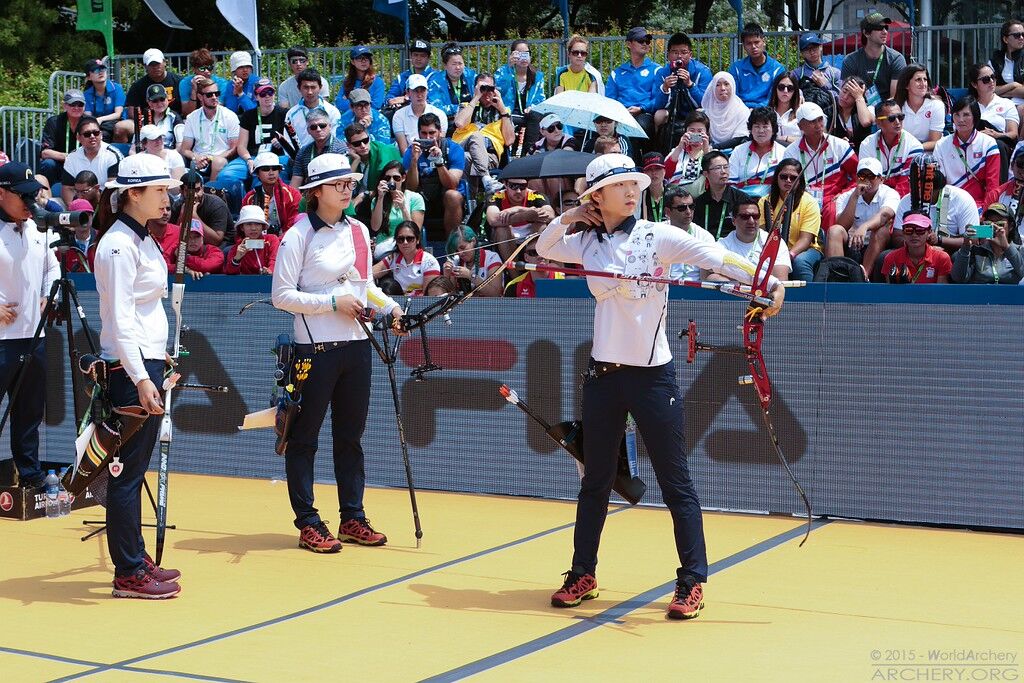
The top three of the primary Korean team, Ki, Kang and Choi, were entered into the Aquece Rio test event. Chang came along as the reserve, though it was an optional journey for her to make. (Lee Seungyun, the fourth recurve man, did not attend Rio – choosing instead to compete in a national All-Star event back in Korea.)
For the first few days of the Aquece Rio International Archery Challenge, the alternate team that attended the fourth stage of the Archery World Cup in Medellin observed and supported their competing teammates. The alternates left before the start of finals.
While Changhoon said the test event was “one more competition” on the field, he placed its importance more in experience and knowledge gathering for the Games themselves.
“For us, the test event is the start of the Olympics. We came here to inspect the atmosphere, the environment. To get accustomed to the weather and the food – but, most importantly, to the venue,” he explained.
Korea has already sent scouts to nearby cities in Brazil to locate suitable training and acclimatisation venues in the lead up to the Games.
“I’m not surprised by anything Rio,” coach Yang said, paying testament to the preparation of the entire Korean squad. “We expected it to be like this: Hot.”



